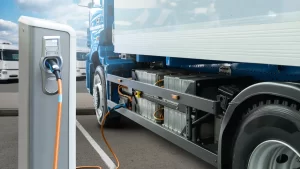
How to Negotiate the Best Price When Buying a Car
Car dealers make money in numerous ways. Some methods are subtle while others more overt.
Negotiating the best price for a car is both an art and dance, so being prepared is key – including knowing your dealer’s tricks, as well as being willing to walk away if need be.
Do Your Research
Car buying is a serious commitment that should not be undertaken quickly or hastily, lest you end up regretting it later on. Take your time researching all available vehicles before making your choice and doing your homework before rushing into it.
As well as knowing the dealer’s MSRP and invoice price, CR provides information about average transaction prices for each model and trim level available on its car model pages.
Data will help depersonalize the negotiation process and establish an accurate cost baseline. Furthermore, salespeople may accept your opening bid more readily because you are supporting it with hard facts instead of opinions or emotions.
Know What You Want
An understanding of your desired goals when purchasing a car can help streamline dealership negotiations. Knowing its current market value as well as any monthly payments that fit comfortably within your budget are invaluable when buying from dealerships.
Be wary of any additional fees that a dealer might try to add on. Things such as paint and fabric protection, rust-proofing, extended warranties and additional security systems should generally be avoided where possible.
Avoid discussing trade-in prices until the very end of your negotiations; doing so can divert you from getting the best price on your new vehicle. Instead, focus on negotiating for the lowest “out-the-door” price (including all taxes and fees). Doing this increases the odds that you find an offer you’ll love for years.
Be Prepared
Before embarking on the purchase of a vehicle, it’s essential to create an action plan in advance of beginning negotiations with dealerships. Starting by researching manufacturer invoice prices or using tools like KBB or Edmunds can give an indication of its approximate costs – this is also a good place for negotiation strategies to start from.
Be prepared to negotiate against a dealer’s initial offer by making one that is lower. Aim for MSRP or lower as your target. Dealers will often try selling you extras such as tire protection plans or anti-theft protection; be firm in refusing these charges.
If you have your credit score from an independent website handy, share it with the dealer to depersonalize negotiations and gain more leverage during negotiations.
Be Firm
Car salespeople are skilled negotiators, and their main goal is to convince you to agree on a deal that benefits them. They may employ tactics to wear you down such as constantly referring questions back to their manager or keeping you waiting.
Be firm in your assertions to the dealer that you have done your research. If they dispute this fact, remind them that Edmunds and Kelley Blue Book can give an accurate account of current market prices.
Negotiating prices over email or text with dealers can take some time, but it can be an efficient way to shop around and keep within your budget. Working with their internet manager often works well if they’re willing to meet halfway; otherwise be ready to walk away if they do not comply.
Be Flexible
At all costs, buying a car should be treated as a business transaction and let emotions take the forefront when negotiating the best possible deal. Allowing them to dictate your terms gives the dealer power that is unwarranted.
If a salesperson presents you with an “it-or-leave-it” offer, only accept it if two conditions are met: minimal profit for the dealer and reasonable pricing for your chosen car. Otherwise, there could be better deals available elsewhere.
Avoid discussing details that give away your intent to buy, such as planning to trade-in or finance (although it’s perfectly acceptable to say you plan to purchase within a given time frame), since these details often get added into the final sale price. Furthermore, inquire about additional fees such as dealer preparation costs, extended warranties or VIN etching that might incur.


